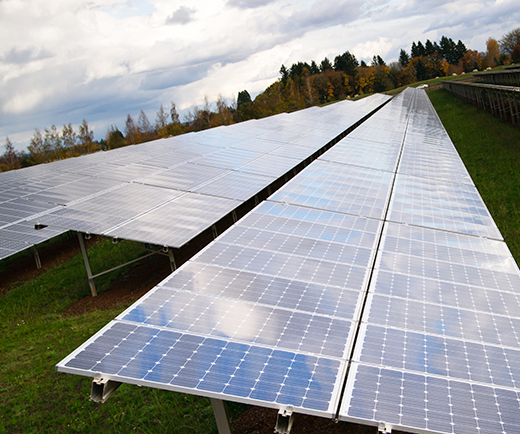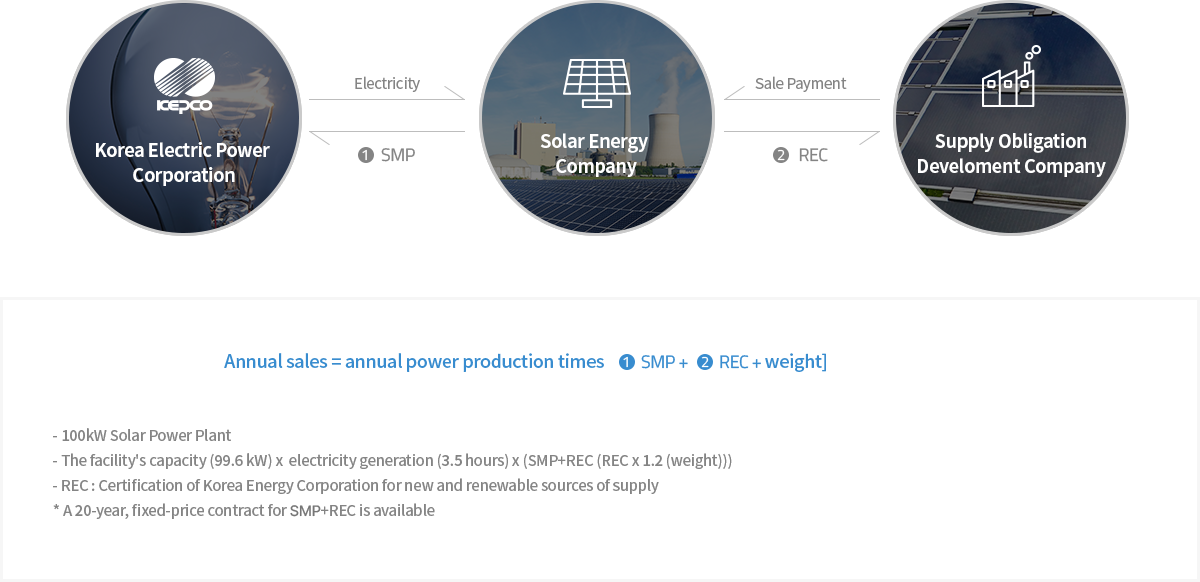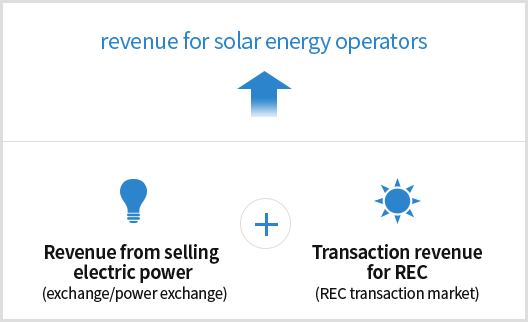
We provide a comprehensive system that handles every aspect of a company from the beginning to the end.
RP5 will always be there for you with its special expertise, from dependable construction to properly selected materials and maintenance.
RP5's distinct optimized system design and rigorous quality focus provide quicker client return on investment. RP5 Co., Ltd. is constantly creating business plans to maximize the profitability of solar power plants, and by establishing an official agency with a reputable business with the best reputation in Korea and worldwide, we are able to offer photovoltaic solutions of the highest class and at competitive prices.
Regardless of the size of the organization, such as individuals or businesses, the photovoltaic power production business makes money by selling electricity generated by solar power plants to KEPCO and other power generation companies committed to deliver.
Due to its high reliability and long-term return projections, it is gaining interest from investors as a potential alternative investment option.

-
1. Selection of business site · Check to see whether a company
producing solar energy is feasible.
- Examine the construction and
land sector
-
2. Authorization for the
power generation industry · Selection of the appropriate
municipal government.
- Wiretapping: 500kW or more
- County Office: 500 kW or less
50 days or so will take after
receipt (The municipal
government's requirements for
capacity may differ)
-
3. Development license · Request for a permit from
the City/country Office
- Takes around 15 days after
receipt
※ resident permission if required
-
4. Business Registration · (City/country unit) competent
tax office
· Takes 7 days or so after receipt
-
5. Application for Power
Supply Contract · In-person confirmation
· Decision of an entrance point
(confirmation before permitting
power generation)
· Payment of incoming building
costs
-
6. Construction plan report · Confirmation of the appropriate
local administration (provincial
office, city/country office)
· Selection of an electrical
supervisor (Design Supervision
Contract)
-
7. Installation construction · public works electrical
· Construction (module, inverter)
· Structure construction
-
8. Inspection before usage · Construction Safety Electrical

-
9. Sales agreement · Korea Power supply agreement
· REC binding contract
- purchase commitment
-
10. Report on the start of business operations · Report on the provincial, city,
or firearms office
-
11. Installation examination · Application for RPS Target Facility
Confirmation
· Conformation of the Korea
Energy Agency
-
12. REC issuance transaction · Renewable Energy Center
- REC issuance
· KPE (Korea power exchange)
- REC Transaction

RPS stands for obligatory new and renewable energy supply,
often known as a mandatory new and renewable energy quota system and it
is a system that mandates that a certain portion of the total power production
come from new and renewable sources from power producing corporations.
The power generating companies are the six subsidiaries of Korea Electric Power
Corporation and seven independent power producers. In order to achieve the
electricity production rate utilizing renewable energy, power generating firms
also buy RECs (Renewable Energy Supply Certificates) by entering into a long-term
contract with a new and renewable energy operator in addition to their own procurement.
The Korea Energy Agency's REC (Renewable Energy Supply Certificate) is priced based on
supply and demand. The total of the aforesaid REC (renewable energy supply certificate) and
SMP (system limit price), which is the unit price of electricity acquired by KEPCO from different
power producing businesses, creates the electricity sales income.


